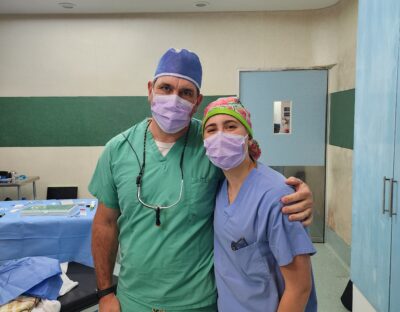Gum Disease in Children
February is Gum Disease Awareness Month. You may be thinking to yourself, “can children get gum disease?” The answer is that though it’s not typical to find more severe forms of gum disease in children, chronic gingivitis is commonly found in kids of all ages. The good news is, parents playing an active role in their child’s oral health routine can easily prevent significant issues from ever occurring. Here are the main signs to watch out for to make sure your child isn’t in the early stages of developing gum disease.

What does gum disease look like?
The American Academy of Periodontology says that the main signs of periodontal disease are:
- Bleeding while brushing or flossing your teeth
- Puffiness or swelling of the gums or any indication they look irritated or inflamed
- Bad breath (halitosis) that does not improve despite consistent brushing and flossing
- Receding gum lines that expose the lower part of the tooth
Here are three types of gum disease that children can develop and how to prevent these oral health problems.
Gum Disease Early Stages: Chronic Gingivitis
Did you know that gingivitis is a mild form of gum disease? If you notice that your child’s gums bleed when they’re brushing their teeth or flossing, this is a sign of the early stages of gingivitis. Luckily, this type of gum disease is easily reversible! Brushing and flossing consistently and thoroughly are the best ways to prevent gum disease. If chronic gingivitis is ignored or left untreated, it can worsen and become a much more serious form of periodontal disease, like periodontitis.
Aggressive Periodontitis
Aggressive periodontitis is most likely to occur in kids during their teenage years. Unlike other types of gum disease, kids that suffer from aggressive periodontitis aren’t likely to see a build-up of dental plaque or tartar. Aggressive periodontitis affects the molars or incisors and is characterized by loss of alveolar bone. The alveolar bone is a part of the maxilla and mandible which supports the teeth by forming attachment for fibers of the periodontal ligament.
Generalized Aggressive Periodontitis
Generalized aggressive periodontitis occurs around the age of puberty and can affect your child’s entire mouth. You’re likely to see inflammation of the gums, large amounts of plaque, and tartar if aggressive periodontitis has developed. This is a much more serious form of gum disease and can cause early tooth loss.
How To Prevent Periodontal Disease
By keeping a consistent oral health routine at home, kids can prevent gingivitis from ever occurring. Parents should monitor their child’s brushing until the age of 8 to ensure that they’re exercising healthy habits daily and brushing and flossing properly. If you keep that up, their smile will be on the right track!
Though it may be tempting for kids to skip a night and go to bed without brushing, an inconsistent oral health routine can lead to issues down the road. If brushing at bedtime is a challenge for your kids, have them brush right after dinner, so long as no snacks follow. If you wait until right before bed or after storytime, kids can be so comfortable or tired that they forget to brush.
By keeping up with routine dental checkups, your pediatric dentist will be able to identify if any signs of periodontal disease are present. Your pediatric dentist will be able to recommend a treatment plan based on the severity of the symptoms.
Treatment for Gum Disease
Gum disease won’t go away on its own. If your child develops an early stage of gingivitis, it can be treated with regular dental checkups and by implementing a consistent oral hygiene regimen at home. If their gum disease has already progressed to a more serious stage, more frequent dental checkups, like deep cleanings every three months, may be necessary.
We hope this post helps make you more aware of how gum disease impacts children and how you, as parents, play a vital role in preventing it.
Sources: https://www.sciencedirect.com/topics/medicine-and-dentistry/alveolar-bone
https://www.perio.org/consumer/gum-disease-and-children
Ready to get your child’s smile on the right track?
Schedule your child’s dental checkup to make sure their smile is on track for a lifetime of oral health.
Serving Lots of Happy Patients
"I’ve been going to Pediatric Dental Associates since I was a child, now I take all 3 of my children there. Great office! Love Dr. Sara, and the my two favorite hygienist…" Read More
"My daughter has special needs & going to the dentist is very difficult for her. Every time she goes she is treated with great care & her needs are always remembered and…" Read More
"How many people can say that their children love going to the dentist? I'm not sure of the stats, but I can raise my hand. From the front desk staff to the…" Read More



